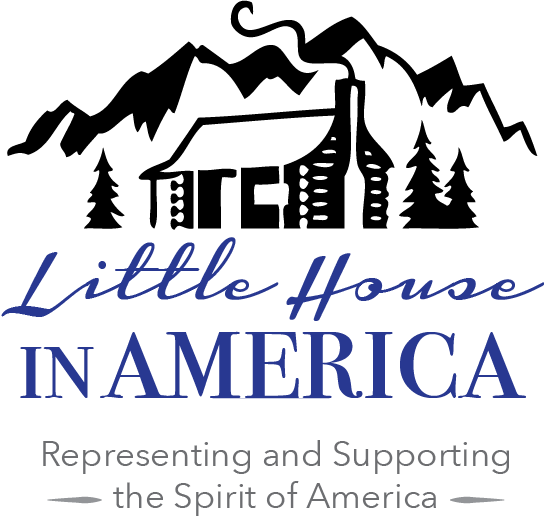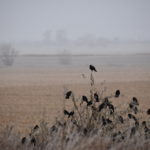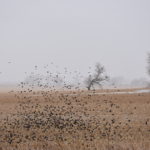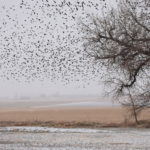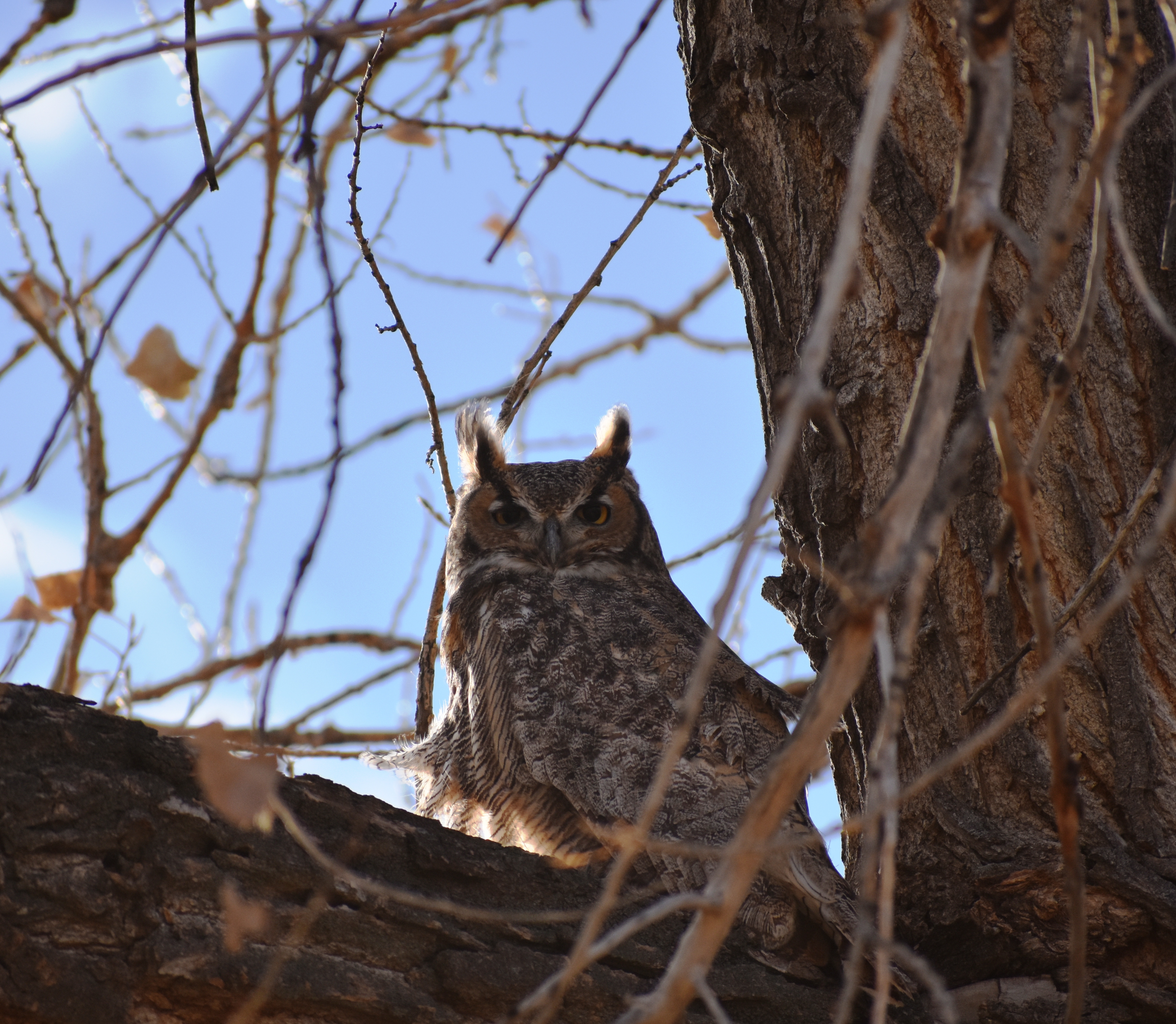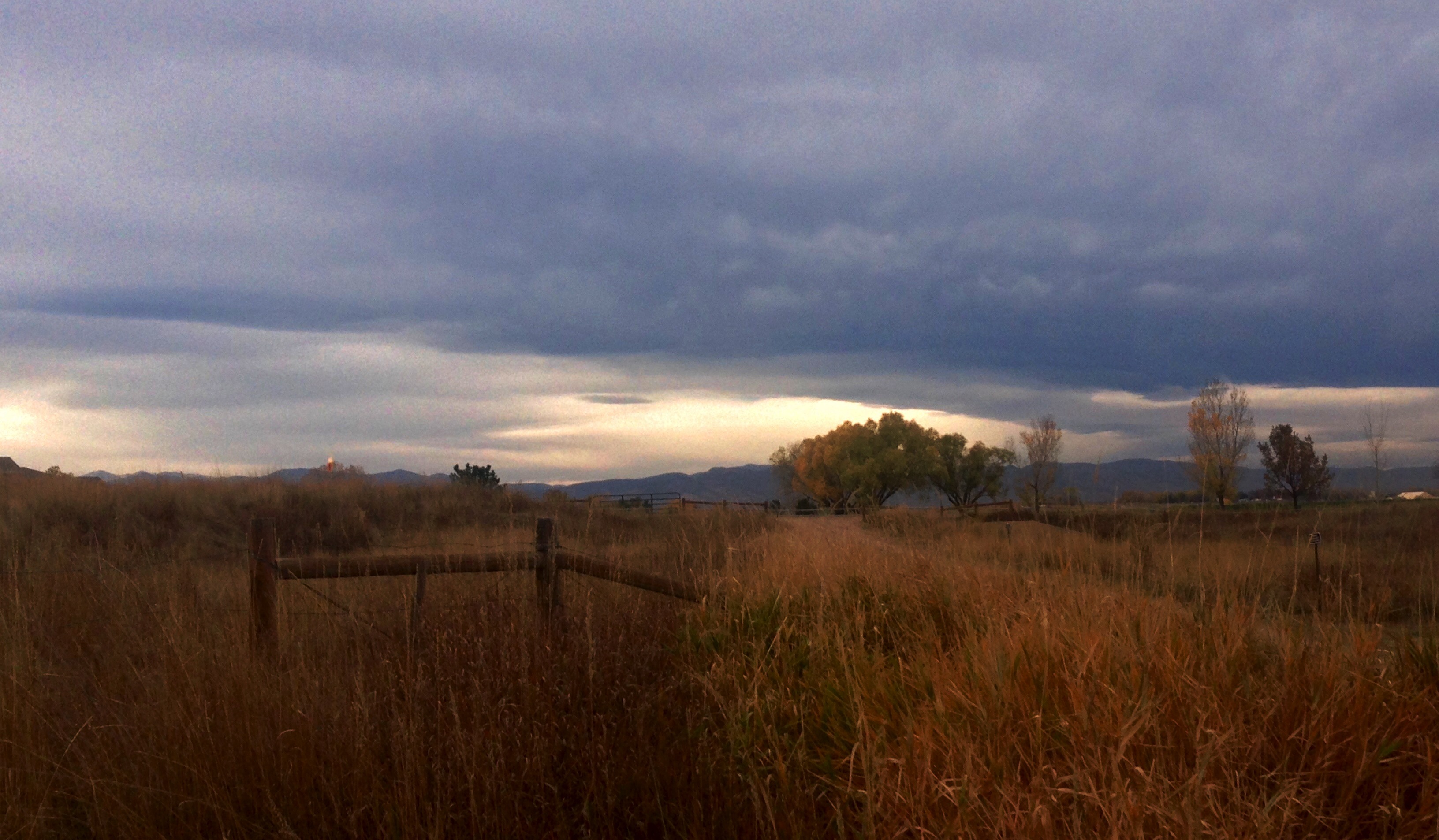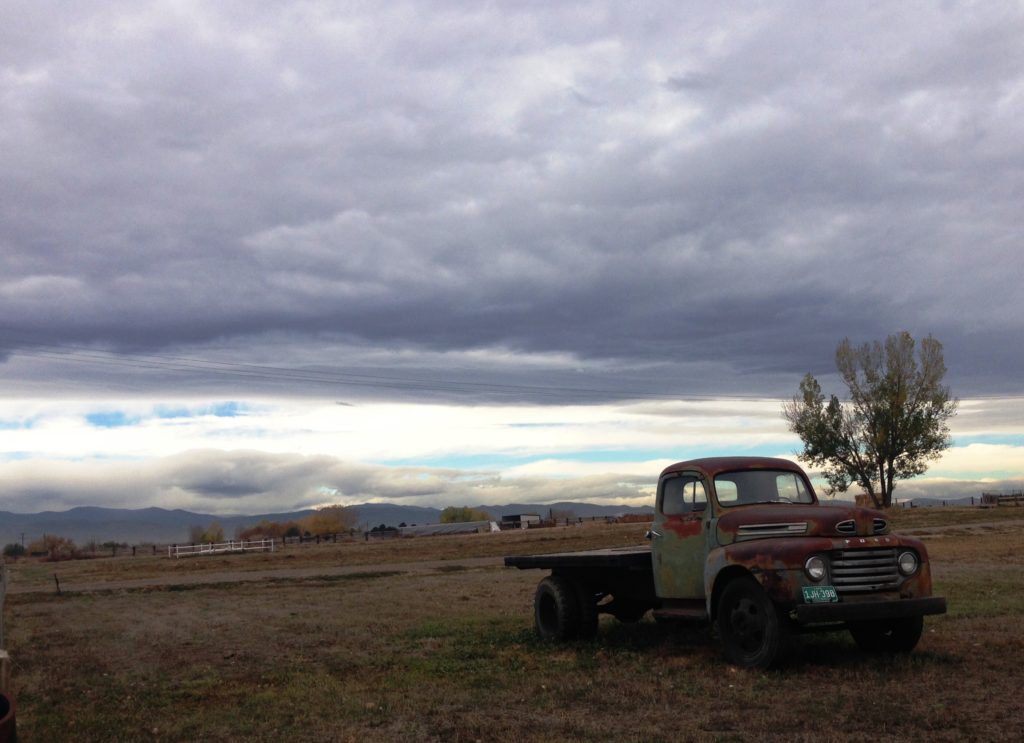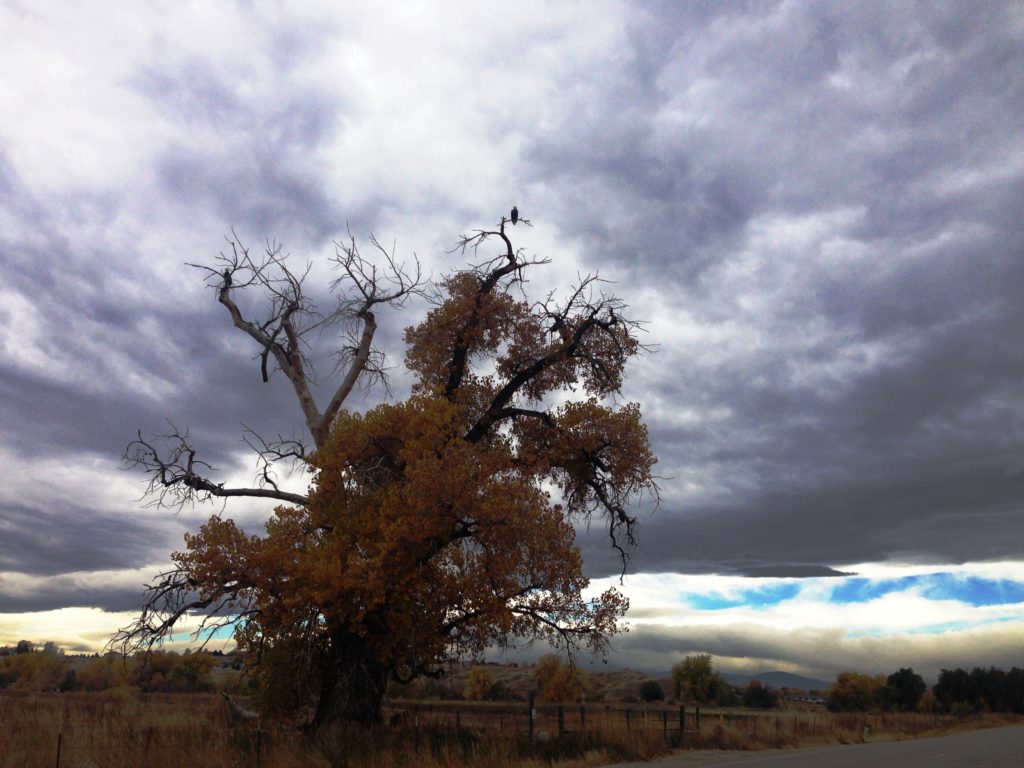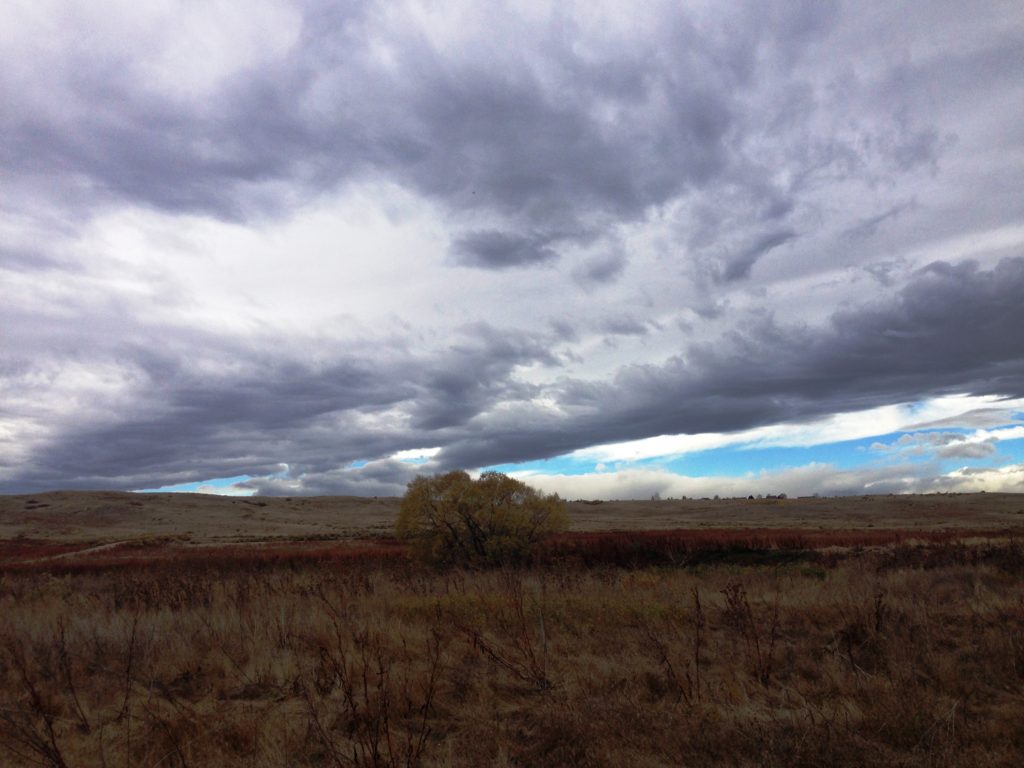South and west of Grand Junction, into Utah
wild horses push against the wind at the side of the road,
where the tips of grass show hints of green.
Their manes are long and twisted exhibitions of hair.
Two of them, impossibly and luminously colored, ignore their closeness to the highway
as cars blur by;
three more are a galloping pageantry flying towards no water in sight,
chasing the feathery cover of clouds.
They show themselves again, when we pass into Arizona;
dust devils spin behind them and kick up their tails.
Into the reservation and they are harder to see, but we find them still,
hovered under the small overlap of roof
where there are roundhouses, abandoned and effusive
and turning the thoughtful heads of my somnolent passengers.
Here, there are towns that are not quite towns,
and the horses turn domestic.
They are kings and queens behind fences and yards that outshine houses.
Their slick fur has been combed free of winter coats, and their muscled, racing bodies
haven’t forgotten the hot, crimson dirt where they used to run.
We stop on the reservation to spend the night, falling into familiarity
absorbed and welcomed like we have been here before,
like we have come back.
Nightfall turns cold quickly and takes away the day’s heat from the red rock and sand.
The drive behind us cases with a peace that has no words,
and in the morning my youngest awakes to tell us his dream,
I dreamed we were on an island; his words are the slow and groggy words that follow a
sleep without movement, sound and deep-breathing,
and we didn’t have to search for food,
and we had a good shelter.
We listen, resting our heads on our hands, watching him,
We had everything we needed, he said,
on that island.
